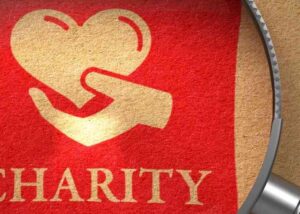Can students of the Islamic sciences take Zakah even if they have Nisab?
Quran
Hadith
Islamic Text
No, only poor people can take Zakah.
إِنَّمَا الصَّدَقَاتُ لِلْفُقَرَاءِ وَالْمَسَاكِينِ وَالْعَامِلِينَ عَلَيْهَا وَالْمُؤَلَّفَةِ قُلُوبُهُمْ وَفِي الرِّقَابِ وَالْغَارِمِينَ وَفِي سَبِيلِ اللَّهِ وَابْنِ السَّبِيلِ فَرِيضَةً مِنَ اللَّهِ وَاللَّهُ عَلِيمٌ حَكِيمٌ
Charity is for the poor, the needy, those employed to administer it, those whose hearts have been (recently) reconciled (to the truth), the enslaved, those in debt, those who strive in the path of Allah and the wayfarer. An obligation from Allah, and Allah is the Knowing and the Wise. (Surah al-Towbah, 60).
We see in the noble verse above that students of Islamic knowledge are not included as automatic recipients of Zakah. Therefore, they must fall into one of the categories mentioned in order to be eligible to receive Zakah. If they do not have Nisaab then they will qualify as Faqeer or Miskeen, but if they have Nisaab they will not and cannot take Zakah.
Some people say they qualify under ‘those employed to administer it (Zakah),’ and they cite to books of Hanafi Fiqh mentioning this. It is correct to say that this has been mentioned in books of Hanafi Fiqh, however it is important to clarify that this is not a sound opinion in the Madhab and therefore not permitted to follow. It is important for scholars to check the strength of a position before teaching it or propagating it. Imam Ibn Abideen explained that this is an unreliable opinion when he mentioned it in his Haashiyah, firstly quoting from Imam Tahtawi and then commenting himself.
وَهَذَا الْفَرْعُ مُخَالِفٌ لِإِطْلَاقِهِمْ الْحُرْمَةَ فِي الْغِنَى وَلَمْ يَعْتَمِدْهُ أَحَدٌ ط. قُلْت: وَهُوَ كَذَلِكَ. وَالْأَوْجَهُ تَقْيِيدٌ بِالْفَقِيرِ (رد المحتار على الدر المختار)
And this ruling goes against the general rule of prohibition for a wealthy person (Nisaab), and no one considered it reliable, Tahtawi. I (Ibn Abideen) say, it is so. And it is correct to limit it to the poor. (Radd al-Muhtaar).
Students must understand that not every opinion found in a book of Fiqh is valid. It must be a sound opinion or ideally the strongest opinion for it to be promoted or acted upon. It is not permitted to present weak or unreliable opinions as the position of the Madhab.
It is also important for Muslims to know that Zakah cannot be understood via Q and A, rather it must be studied as a course with a reliable teacher.
And Allah (Most High) Knows Best.
– Answered by Shaykh Noorud-deen (09.04.2021)
See also:
See also (video):






